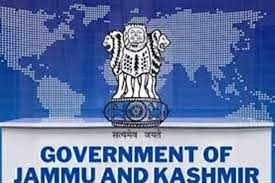Since the army is the sole and ultimate decision maker in Pakistan, it has virtually no compulsions to limit its options for retaliation. Rawalpindi knows that given New Delhi’s uncompromising stance on national security, any retaliation that could escalate hostility levels would be suicidal. Conversely, it's also aware that failure to react and show visible results would cause further humiliation for the army.
Befitting Retribution
Reiterating that “We are living up to the commitment that those responsible for this [Pahalgam terrorist] attack will be held accountable,” New Delhi announced that “the Indian Armed Forces launched ‘Operation Sindoor’, hitting terrorist infrastructure in Pakistan and Pakistan-occupied Jammu and Kashmir [PoJK] from where terrorist attacks against India have been planned and directed.”
In this attack, nine sites were targeted with precision guided munitions [PGMs] during the intervening night of May 6/7, and post-strike visuals reveal heavy damage to the sites struck by missiles. Pakistan army’s elaborate air defence setup was caught completely unaware and this added to Rawalpindi’s discomfiture.
Destruction of the Markaz Taiba camp in Muridke, which is the main terrorist training center of Lashkar-e-Taiba [LeT] and Markaz Subhanallah in Bahawalpur, the headquarters and main recruitment center of proscribed Jaish-e-Mohammad [JeM] terrorist group has further embarrassed Rawalpindi since both LeT and JeM are its pet proxies and enjoy a quasi-military status.
So, it would be fair to assume that Rawalpindi will definitely undertake retaliatory action to assuage domestic sentiments and salvage its plummeting public image.
Options for Retaliation
Since the army is the sole and ultimate decision maker in Pakistan, it has virtually no compulsions to limit its options for retaliation. Rawalpindi knows that given New Delhi’s uncompromising stance on national security, any retaliation that could escalate hostility levels would be suicidal. Conversely, it's also aware that failure to react and show visible results would cause further humiliation for the army.
Pakistan has articulated two options for retaliation:
Pay back in Equal Measure. By invoking Article 51 of the UN Charter that allows nations the “right to self defence” and declaring that Pakistan reserves the “right to respond appropriately,” Pakistan Deputy PM and Foreign Minister Ishaq Dar has given an indication that the likelihood of escalation in Indo-Pak will not deter Islamabad. Prime Minister Shehbaz Sharif has also endorsed this stance.
Mellowed Response. While Sharif and Dar are breathing fire, Pakistan’s Defence Minister Khawaja Asif has come out with a more reconciliatory approach. Speaking to Bloomberg, he said, “As long as we are under attack, under fire, we have to respond. We have to defend ourselves. But if India backs down, we will wrap up this tension.”
Evaluating Pakistan’s Response Options
Paying back in equal measure runs the risk of escalating tensions by enlarging the scope of conflict. Furthermore, since there are no terrorist training centres or camps on Indian soil that pose a threat to Pakistan, any target selected by the Pakistan army would not come within the ambit of ‘self defence’ as articulated in Article 51 of the UN charter. Hence, any violent action initiated by Pakistan is tantamount to aggression that would further escalate Indo-Pak tensions.
A mellowed approach on the other hand is a practical option that would definitely de-escalate tensions and under the prevailing conditions serves as the most appropriate course of action that safeguards Pakistan’s interests. However, adopting this choice would enrage hawks in Pakistan who would perceive it as abject surrender and result in loss of face for both Islamabad and Rawalpindi.
Likely Response
His abject failure to subdue Tehreek-e-Taliban Pakistan fighters in Khyber Pakhtunkhwa and armed groups in Balochistan may compel Pakistan army chief Gen Syed Asim Munir to take precipitative decisions for diverting public opinion. In fact, having scripted the current crisis by his rabid Hinduphobic that inspired terrorists to kill tourists belonging to this community after being subjected to religious profiling in Pahalgam, Gen Munir cannot now step back without inviting public ire and resentment in the army’s rank and file.
Most importantly, after talking about fighting ten more wars for Kashmir and threatening that “Any military misadventure by India will be met with a swift, resolute and notched-up response," Gen Munir now has no choice but to walk his talk, even if it means unnecessary spilling blood of his countrymen and jeopardising Pakistan’s future. But then, why should he worry- didn’t Gen Pervez Musharraf do the same by pushing Pakistan into the 1999 Kargil War and getting away with it?
India therefore needs to remain on guard and be fully prepared to firmly deal with any act of hostility initiated by Pakistan or its proxies, as this is the only language Rawalpindi understands!
Email:---------------------- nileshkunwar.56@gmail.com









